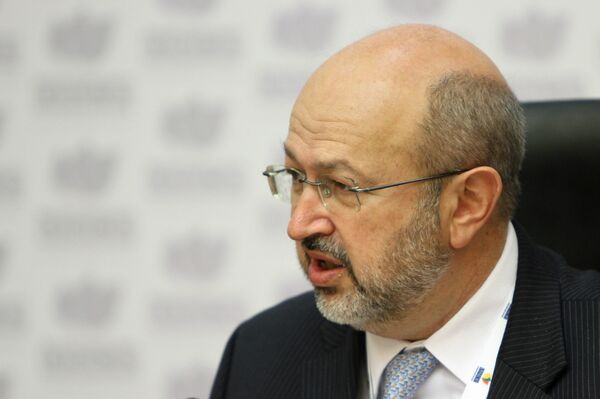ALPBACH, August 24 (RIA Novosti) - OSCE Secretary-General Lamberto Zannier urged Ukraine on Sunday to ensure that the fundamental rights of ethnic Russians living in Ukraine are not curtailed, since it was the attack on the Russian language, among other things, that snowballed into a full-scale armed conflict in the country’s east.
“I asked the Special Monitoring Mission to report how Russian communities are feeling in Ukraine. After Maidan the parliament attempted to pass a law downgrading the status of the Russian language. That was one element that created the antagonizing approach in Ukraine,” Zannier said at the European Forum Alpbach in Austria.
He stressed that the Organization for Security and Cooperation in Europe was aware of complaints coming from majority Russian areas in Ukraine about having less access to social services and dwindling press freedoms.
“We hear that there are not enough schools, not enough kindergartens. This is something that the international community should work on. And to create more space for the communities that do not feel at home. It is important to work on access to the media for everybody. There is quite a lot of work for the international community to do in this area,” the OSCE secretary-general said.
Lamberto Zannier also said the European Union was seeking to create a “common security area from Vancouver to Vladivostok.” He emphasized that there were two “dimensions” to it – transatlantic and Eurasian. Russia has been building a Eurasian Union, while the European Union’s has been moving in the transatlantic direction.
“The EU obviously moves in one of these directions – transatlantic one. It helped us in the Balkans where the attractions of the EU are strong. As we move to Ukraine, the situation changes,” he said.

